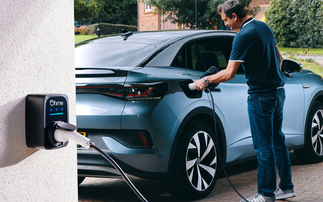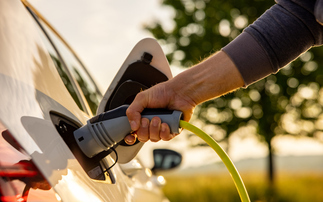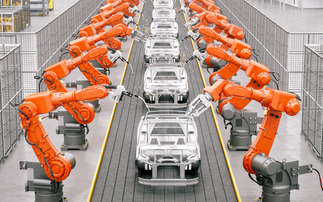Green Car Guide's Paul Clarke reports from the LowCVP ponders the implications of the zer emissions racing series and other themes at the LowCVP summit
On the eve of the first ever Formula E race in London, the focus of the LowCVP Conference 2015 was whether the electric race series could get motorists sufficiently excited to buy electric cars - and FIA Formula E's Chief Executive, Alejandro Agag, was on hand to provide his view.
Aside from the commercial reasons, Alejandro set up Formula E with two main aims. Firstly, to help bring about a change in perceptions about electric cars, and secondly, to improve the technology of electric cars.
Alejandro said that he was pleased with progress so far towards these two goals - even though the imminent race in Battersea Park only marked the end of the first year of the event.
He quoted that after the end of the Formula E race in Miami, spectators were interviewed and 99% said that they would be more inclined to buy an electric car after the race - which supports the belief that Alejandro's first aim is already well on the way to being successfully achieved.
In terms of technology, he also said that he expected the energy in the race cars' batteries to be doubled in five years time - so ticking off the technology goal. He also mentioned that the series would be using solar energy in the future.
Pascal Couasnon of Michelin, tyre supplier to Formula E, said that Michelin has developed a special tyre for the race series that uses minimum energy (tyres consume 20% of a vehicle's energy, but this rises to 30% with electric cars, as they're more efficient). The race series also uses just one tyre for both wet and dry conditions.
Alejandro set the scene for the rest of the LowCVP Conference. And the new Transport Minister, Andrew Jones, left the audience in no doubt that whatever people's views might be about electric cars, the UK's carbon reduction targets mean that we're committed to a course of decarbonisation for our vehicles by 2050 - and the best technology to do this in the imminent future, at least for passenger cars, is electrification. Evidence supporting this can be found by looking at where the fastest growth is in car sales at the moment: in the ultra-low emission vehicle sector. There are also an increasing number of vehicles eligible for the government's plug-in car grant.
Andrew Jones said that government and the car industry were working well together, and gave the example of the £1bn Advanced Propulsion Centre. He also acknowledged that air quality issues were important as well as CO2, and that policy should encourage emissions impacting on both air quality and climate change to be reduced. Andrew concluded by saying that we are "pushing at an open door with this government."
The subject of the carbon emissions from the electricity grid came up a number of times during the day, and reassurance was provided that work is also underway to decarbonise our energy supplies - although the energy generation and grid infrastructure can't be transformed as quickly as the cars we drive.
Dr Jeremy Leggett, climate policy expert and founder of Solar Century, looked at the subject of energy. He explained how the cost of disruptive technologies would reduce and the cost of traditional energy would rise. His view was that there was no future in fossil fuels, and renewables could provide enough energy for all our needs.
Edmund King, President of the AA, reported on a number of survey findings from AA members, with one of the headlines being that 2.5 million second cars in the UK could be replaced by an electric car with no disadvantages. He also quoted that 76% of people in Britain park their car in a driveway or garage, so they can be charged at home overnight, so supporting the view that we don't need millions of pounds invested in public charging infrastructure.
Dave A. Roberts from EA Technology provided a taste of some data from My Electric Avenue, a pioneering project examining if local electricity networks can cope with charging a cluster of electric vehicles at peak times.
The project is now entering its reporting phase and it already has some interesting facts and figures, including that the trial participants have driven their Nissan LEAF EVs more than 2.7 million km in less than 18 months - almost the equivalent of driving to the moon and back eight times. Dave also added that nearly 60% of the trial participants are looking to lease an EV when the trial ends.
Over the next six months My Electric Avenue will be disseminating its findings so that energy companies, car manufacturers and others can learn from the project.
The conference's morning session had been chaired by ITV's Formula E presenter Jennie Gow; the final conference session of the afternoon was chaired by the BBC's Roger Harrabin and discussed Mobility in Future Cities, with the panel including Matthew Pencharz, senior environment adviser to the Mayor of London, and Christophe Arnaud of Bluepoint London, who provided delegates with the latest news on progress towards the launch of the Bolloré Group's electric car sharing scheme - Autolib London - which he said should be up and running by the beginning of 2016.
Andy Eastlake, Managing Director, LowCVP, also took part in this panel session and focused on how we need to remain mobile and sustainable, and suggested that attitudes may need to change about vehicles and their ownership models.
Two LowCVP reports were also launched during the week of the conference.
The LowCVP 2050 Transport Energy Infrastructure Roadmaps provide a path to transport decarbonisation. They show that the UK can develop the infrastructure necessary to deliver the low carbon fuels of the future but that strong coordination is needed between key organisations. Initial public support will also often be needed to enable investment in the necessary infrastructure to be kick-started.
The research, by consultants Element Energy, says that the deployment of the public refuelling infrastructure that is necessary for the UK to meet its carbon emission reduction targets for transport will require investment of more than £10bn by 2050. It will also require long-term policy clarity and consistent government and regulatory support.
The Good Practice Guide for Local Measures to Encourage the Uptake of Low Emission Vehicles, produced by Urban Foresight, was also launched. A key recommendation is that policy measures implemented at the local level should be consistent with each other, and that common definitions and vocabulary for low emission vehicles should be established.
The LowCVP identified five ‘P's from the Guide - levers that local authorities can most effectively use to influence low emission vehicle uptake at the local level:
• Parking - discounts for LEVs or dedicated bays
• Permits - discounts for LEVs to operate in low emission zones and for residents; preferential permits for LEV taxis
• Planning - embedding consideration for LEV fuelling infrastructure into local development
• Procurement - local authorities specifying LEVs for their own fleets and setting leading standards for their service providers
• Promotion - of the benefits to business and via educational activity within the local community.
Click here to view LowCVP reports
The results of a LowCVP survey were also announced, the headline being that nearly half of ‘expert' respondents expect their next car to be a battery electric or plug-in hybrid.
The LowCVP Conference 2015 concluded as it began: we know where we're going with decarbonisation targets, and the low carbon technology that we need to get us there is being developed. But one of the key potential obstacles in moving to greater numbers of ultra-low emission vehicles on our roads is motorists' perceptions about ultra-low emission vehicles. This is where Formula E can help to change views, but its messages also need to be disseminated more widely - which is where the partnership working of the LowCVP could help.
This article first appeared at GreenCarGuide.co.uk








